Пинкер С. Язык как инстинкт. — М.: Либроком, 2009.
Роуз С. Устройство памяти: От молекул к сознанию. — М.: Мир, 1995.
Сакс О. Антрополог на Марсе. — М.: ACT, Астрель, 2011.
Смолл Г. Библия памяти. — М: ACT, Астрель, 2007.
Эко У. Поиски совершенного языка в европейской культуре. — М.: Александрия, 2009.
Baddeley, A. D. (2006), Essentials of human memory. Hove, East Sussex, UK: Psychology Press.
Barlow, F, (1952), Mental prodigies: an enquiry into the faculties of arithmetical, chess and musical prodigies, famous memorizers, precocious children and the like, with numerous examples of «lightning» calculations and mental magic. New York: Philosophical Library.
Baron-Cohen, S., Bor, D., Wheelwright, S., & Ashwin, C. (2007). Savant Memory in a Man with Colour Form-Number Synaesthesia and Asperger Syndrome. Journal of Consciousness Studies, 14 (9–10), 237–251.
Batchen, G. (2004). Forget me not: photography & remembrance. New York: Princeton Architectural Press.
Battles, M. (2003). Library: an unquiet history. New York: W. W, Norton.
Beam, C. A., Conant, E. F, & Sickles, E. A, (2003). Association of Volume and Volume-Independent Factors with Accuracy in Screening Mammogram Interpretation. Journal of the National Cancer Institute, 95,282–290.
Bell, C. G., & Gemmell, J. (2009), Total recall: how the E-memory revolution will change everything. New York: Dutton.
Bell, G., & Gemmell, J. (2007, March). A Digital Life. Scientific American, 58–65.
Biederman, I., & Shiffrar, M. M. (1987). Sexing Day-Old Chicks: A Case Study and Expert Systems Analysis of a Difficult Perceptual-Learning Task. Journal of Experimental Psychology, 13 (4), 640–645.
Birkerts, S. (1994). The Gutenberg elegies: the fate of reading in an electronic age. Boston: Faber and Faber.
Bolzoni, L. (2001). The gallery of memory: literary and iconographic models in the age of the printing press. Toronto: University of Toronto Press.
Bolzoni, L. (2004). The web of images: vernacular preaching from its origins to Saint Bernardino of Siena. Aldershot, Hants, England: Ashgate.
Bor, D., Billington, J., & Baron-Cohen, S. (2007). Savant memory for digits in a case of synaesthesia and Asperger syndrome is related to hyperactivity in the lateral prefrontal cortex . Neurocase, 13 (5–6), 311–319.
Bourtchouladze, R. (2002). Memories are made of this: how memory works in humans and animals. New York: Columbia University Press.
Brady, T. R, Konkle, T., Alvarez, G. A., & Oliva, A, (2008). Visual Long-Term Memory Has a Massive Storage Capacity for Object Details. PNAS, 105 (38), 14 325-14 329.
Brown, A. S. (2004). The Deja vu experience. New York: Psychology Press. Bush, V. (1945, July). As We May Think. The Atlantic.
Buzan, T. (1991). Use your perfect memory: dramatic new techniques for improving your memory, based on the latest discoveries about the human brain. New York: Penguin.
Caplan, H. (1954). Ad C. Herennium: de ratione dicendi (Rhetorica ad Herennium). Cambridge, Mass: Harvard University Press.
Carruthers, M. (1998). The craft of thought: meditation, rhetoric, and the making of images, 400–1200. New York: Cambridge University Press.
Carruthers, M. J., (1990). The book of memory: a study of memory in medieval culture. Cambridge, England: Cambridge University Press.
Carruthers, M. J., & Ziolkowski, J. M. (2002). The medieval craft of memory: an anthology of texts and pictures. Philadelphia: University of Pennsylvania Press.
Cicero, M. T., May, J. M., & Wisse, J. (2001). Cicero on the ideal orator. New York: Oxford University Press.
Clark, A. (2003). Natural-born cyborgs: minds, technologies, and the future of human intelligence. Oxford, England: Oxford University Press.
Cohen, G. (1990). Why Is It Difficult to Put Names to Faces? British Journal of Psychology, 81, 287–297.
Coleman, J. (1992). Ancient and medieval memories: studies in the reconstruction of the past. Cambridge, England: Cambridge University Press.
Cooke, E. (2008). Remember, remember. London: Viking.
Corkin, S. (2002). What’s New with the Amnesic Patient H. M. Nature Reviews Neuroscience, 3,153–160.
Corsi, P. (1991). The enchanted loom: chapters in the history of neuroscience. New York: Oxford University Press.
Cott, J. (2005). On the sea of memory: a journey from forgetting to remembering. New York: Random House.
Darnton, R. (1990). First Steps Toward a History of Reading. In The kiss of Lamourette: reflections in cultural history. New York: W. W. Norton.
Doyle, B. (2000, March). The Joy of Sexing. The Atlantic Monthly, 28–31.
Draaisma, D. (2000). Metaphors of memory: a history of ideas about the mind. Cambridge, England: Cambridge University Press.
Draaisma, D. (2004). Why life speeds up as you get older: how memory shapes our past. Cambridge, England: Cambridge University Press.
Dudai, Y. (1997). How Big Is Human Memory, or on Being Just Useful Enough. Learning & Memory, 3, 341–365.
Dudai, Y. (2002). Memory from A to Z: keywords, concepts, and beyond. Oxford, England.: Oxford University Press.
Dudai, Y., & Carruthers, M. (2005). The Janus Face of Mnemosyne. Nature, 434, 567.
Dvorak, A. (1936). Typewriting behavior: psychology applied to teaching and learning typewriting . New York: American Book Company.
Ericsson, K. (2003). Exceptional Memorizers: Made, Not Born. Trends in Cognitive Science , 7 (6), 233–235.
Ericsson, K. (2004). Deliberate Practice and the Acquisition and Maintenance of Expert Performance in Medicine and Related Domains. Academic Medicine, 79 (10), 870–881.
Ericsson, K., & Chase, W. G. (1982). Exceptional Memory. American Scientist, 70 (Nov-Dee), 607–615.
Ericsson, K., & Kintsch, W. (1995). Long-Term Working Memory. Psychological Review 102 (2), 211–245.
Ericsson, K. A. (1996). The road to excellence: the acquisition of expert performance in the arts and sciences, sports, and games. Mahwah, N. J.: Lawrence Erlbaum Associates.
Ericsson, K. A. (2006). The Cambridge handbook of expertise and expert performance. Cambridge, England: Cambridge University Press.
Ericsson, K., Delaney, P. F., Weaver, G., & Mahadevan, R. (2004). Uncovering the Structure of a Memorist’s Superior «Basic» Memory Capacity. Cognitive Psychology, 49,191–237.
Ericsson, K., Krampe, R. T., & Tesch-Romer, C. (1993). The Role of Deliberate Practice in the Acquisition of Expert Performance. Psychological Review, 100 (3), 363–406.
Farrand, P., Hussein, F., & Hennessy, E. (2002). The Efficacy of the ‘Mind Map’ Study Technique. Medical Education, 36 (5), 426–431.
Fellows, G. S., & Larrowe, M. D. (1888). Loisette exposed (Marcus DwightLarrowe, alias Silas Holmes, alias Alphonse Loisette). New York: G. S. Fellows.
Fischer, S. R. (2001). A history of writing. London: Reaktion.
Gandz, S. (1935). The Robeh or the official memortzer of the Palestinian schools. Proceedings of the American Academy for Jewish Research, 7,5–12.
Havelock, E. A. (1963). Preface to Plato. Cambridge, Mass.: Belknap Press, Harvard University Press.
Havelock, E. A. (1986). The muse learns to write: reflections on orality and literacy from antiquity to the present. New Haven: Yale University Press.
Читать дальше
Конец ознакомительного отрывка
Купить книгу



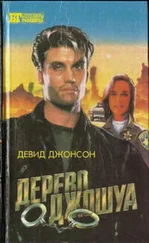
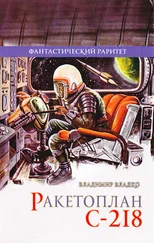
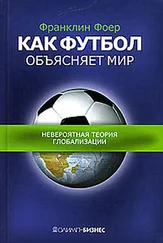
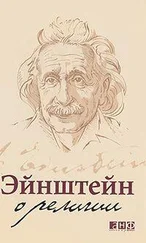
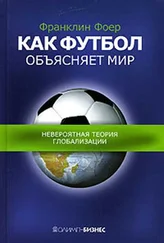

![Джошуа Беккер - Дом минималиста [Комната за комнатой, путь от хаоса к осмысленной жизни]](/books/389799/dzhoshua-bekker-dom-minimalista-komnata-za-komnatoj-thumb.webp)


